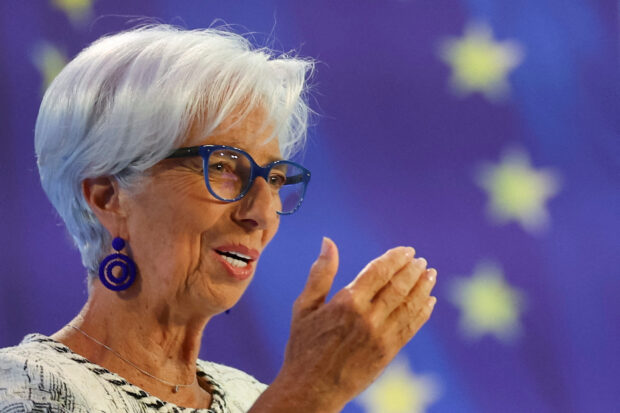The European Central Bank (ECB) President Christine Lagarde addressed concerns about inflation and its impact on corporate profits during a news conference on Thursday. Economists are warning that the ECB may be focusing too much on wage growth as a driver of inflation, while overlooking the role of high corporate margins. This has led to the term “greedflation” being used to describe this phenomenon in the market.
Lagarde acknowledged that rising salaries were contributing to high growth in prices but primarily blamed unit labor costs and productivity for keeping inflation high. However, economists argue that companies are making significant profits due to a lack of competition, which is not being adequately addressed by the ECB. They criticize the ECB for putting the burden on workers to bear the cost of higher prices while ignoring the profitability of companies.
Data from Eurostat shows that wages have been trailing behind inflation, reducing people’s spending power. On the other hand, euro zone companies selling to consumers have reported significant operating margins, indicating strong profitability. The ECB assumes that corporate profits will stop contributing to inflation next year and that companies will absorb higher labor costs. However, this assumption overlooks the possibility of firms using market power to increase selling prices and maintain their profits.
Critics argue that the ECB’s policies, such as raising interest rates, may inadvertently contribute to the persistence of inflation in the short term. They suggest that tackling “greedflation” should involve addressing cartels and promoting competition, particularly in products that affect vulnerable consumers.
Lagarde did not delve into the reasons behind high profits or comment on whether they deserve the attention of central bankers. Instead, she emphasized the ECB’s focus on bringing inflation back to its target of 2%.
In summary, economists have raised concerns that the ECB is neglecting the role of high corporate profits in driving inflation, focusing instead on wage growth. They argue that the ECB’s approach places the burden on workers while ignoring the lack of competition that allows companies to make bumper profits. Critics suggest that addressing “greedflation” should involve promoting competition and targeting cartels.
Denial of responsibility! VigourTimes is an automatic aggregator of Global media. In each content, the hyperlink to the primary source is specified. All trademarks belong to their rightful owners, and all materials to their authors. For any complaint, please reach us at – [email protected]. We will take necessary action within 24 hours.


